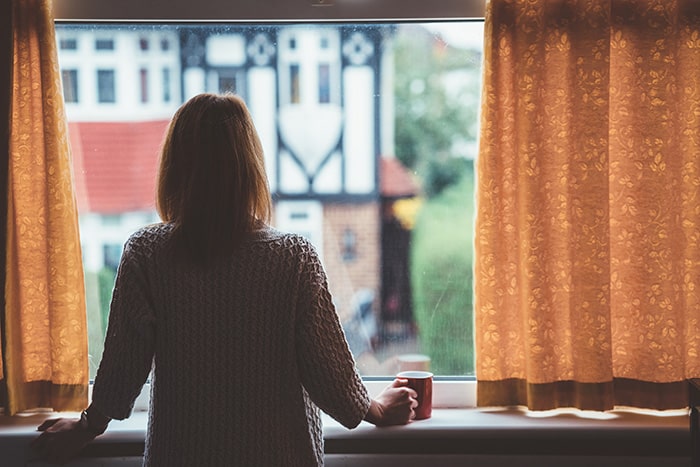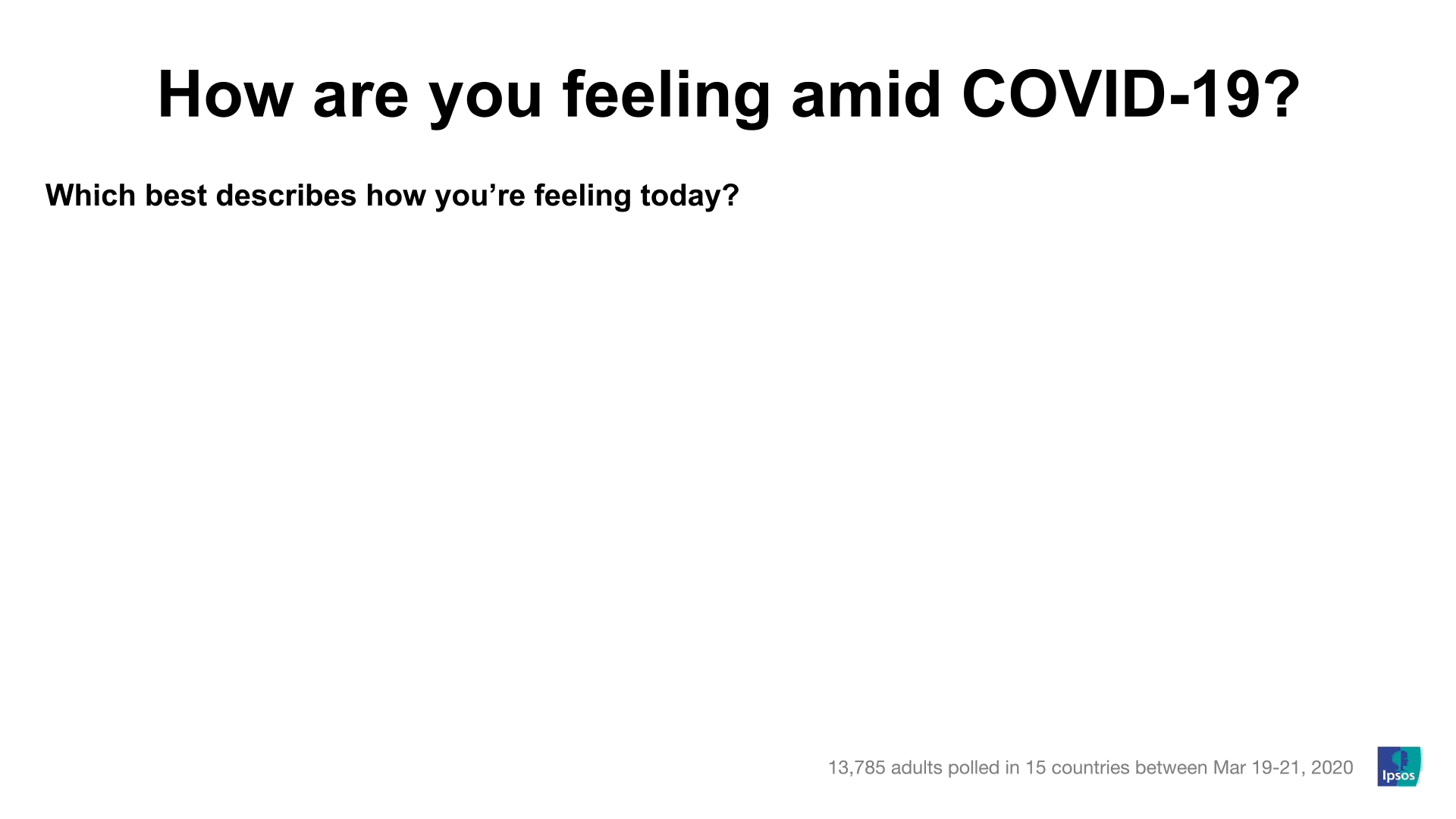Coronavirus pandemic: What are the psychological effects of self-isolation?
 Working from home while taking care of kids, standing at least two metres apart from the next person if you step out to buy groceries, covering your face to the extent that you’re not recognizable, spending more hours online trying to interact with people when before this you were trying to limit your screen time, all begs the question: How are you coping?
Working from home while taking care of kids, standing at least two metres apart from the next person if you step out to buy groceries, covering your face to the extent that you’re not recognizable, spending more hours online trying to interact with people when before this you were trying to limit your screen time, all begs the question: How are you coping?
Weeks into self-isolation with signs that the coronavirus pandemic is not anywhere near ending has even the most optimistic person wondering, just how long will this last?
English poet John Donne famously wrote in a 17th century poem “No man is an island, entire of itself,” a feeling many of us may be experiencing in the new normal of self-isolation and social distancing.
In the latest Global Advisor survey of nearly 14,000 people across 15 major countries, more than two in five (43%) of the respondents said they are impatient to get back to normal life. Another third (34%) are anxious about their health, while 15% are lonely, and 12% are angry about restrictions to their freedom.
At the same time though, more than half (55%) are concerned for those who are vulnerable or weak, while just under a third (31%) are happy to spend time with family. Another one in five (22%) are inspired by how people are adapting.

This mixed bag of emotions could reflect how isolated people really are, according to experts, who say the more severe the isolation, the more severe the psychological impacts.
Stewart Shankman, Professor at the Department of Psychiatry and Behavioural Sciences at Northwestern University in Chicago said studies have shown that online relationships are really similar in many ways to face-to-face ones.
“If people are still maintaining contact with friends, colleagues and family members online, they’re not going to feel socially isolated,” said Prof. Shankman.
But he admits for extroverts who are used to more active social engagements, phone calls and video conferencing might not be enough. “They’re going to struggle a lot with the substitute.”
Regardless of people’s social preferences, experts still agree there could be lasting impacts on all of us as we are forced to put up with barriers that most of us have never encountered before.
How isolation is changing the way we think
Greg Gwiasda, Vice President at Ipsos' Behavioural Science Center in the U.S., said as isolation leads people to crave social interaction, and not getting it can lead to mistrust and cynicism.
“I think a huge effect people are dealing with is the loss of control. So many things that we controlled without thinking we now realize are constrained,” said Gwiasda.
“I want to make a recipe and need a simple ingredient but can no longer easily get it. Can I (should I) eat as much cereal and milk as we used to? This also then impacts our sense of identity – what type of worker am I? Can I still contribute? Can I help and support my family as a father, husband and friend?”
This type of thinking puts us in a prevention mindset, according to Gwiasda, where we seek to avoid the negative and protect what we have.
“When we are in a prevention mindset, we have a sense of obligation and a desire to be vigilant in our actions. This is exhausting,” said Gwiasda. “At the same time, while this is our predominant mindset, we are still seeking moments where we can get into a promotion mindset – where we seek to enrich and add to our lives.”
The challenge is how to find a balance in our way of thinking, especially when we come out of isolation, according to experts, who say it will be difficult for us to temper our mindsets to allow more promotion moments.
“Will we allow our kids to closely play with their friends, will we go back to shaking hands, etc.?” said Gwiasda. “Even if we are told these are rationally OK to do, will we be able to overcome the new habits and associations that were ingrained during this quarantine period.”
Lauren Brinkley-Rubinstein, Assistant Professor of Social Medicine at the University of North Carolina Chapel Hill agrees, saying if social distancing orders go on for many more months, integration back to normal life might be more difficult for people to adjust to.
“People may be reluctant to travel, especially if flying,” she said.
Prof. Shankman adds that the uncertainly regarding whether it is truly safe to do something can lead to anxiety, because uncertainty is one of the biggest inducers of anxiety.
“Chronic stress really dampens your body‘s natural immune system,” said Prof. Shankman. “If we can reduce our stress and anxiety, we’re going to help our body fight,” adding that being stressed during isolation at home also won’t help your body fight off infections like COVID-19.
How we can cope better
Experts say while there is no right or wrong way to cope during self-isolation, one the biggest things you can do for yourself is create or maintain a daily routine that allows for interactions, so that social isolation doesn’t become your default habit.
Gwiasda said as we create new habits because our old ones are disrupted, we have to be mindful of not falling into habits that sacrifice our mental health.
“Set up time to have lunch and or dinner together and stick to it. Don’t work through meals or eat at the computer,” said Gwiasda. “Take some time to sit down and talk with those you are isolated with. If you are alone, set up a schedule to talk to a friend via video call.”
Meanwhile, Prof. Shankman advises maintaining a semblance of the routine you had before you were forced to isolate such as still waking up at the same time every day, getting dressed for work like you normally would, and doing some physical activity like going for a walk.
Identifying when you are not behaving like your normal self is also key at a time like this, according to the experts, who say these restrictive measures could exacerbate mental health issues.
If you’re noticing a big difference in your day-to-day functioning like not being able to focus on your work or take care of your children, it might be time to seek some help, said Prof. Shankman.
“Just basic daily living like you don’t feel motivated to take a shower, or your sleep is disrupted could be signs.”
The increased availability of mental health therapy provided online or by telephone is essential right now, according to Prof. Brinkley-Rubinstein.
“People should not have to worry about the costs of mental health treatment at this time,” said Prof. Brinkley-Rubinstein. “So, any state or federal legislation should include provisions to pay for this.”



